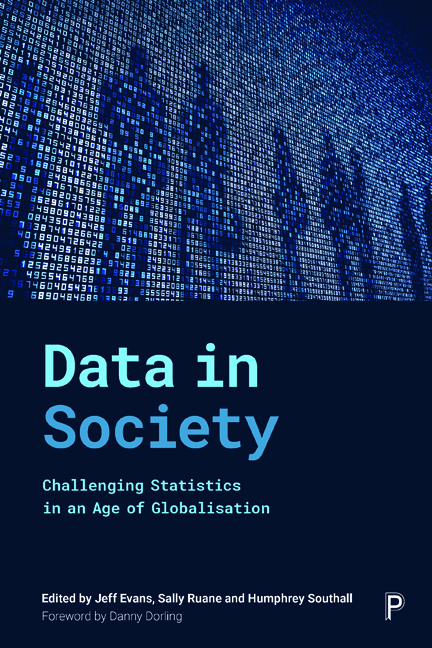Book contents
- Frontmatter
- Contents
- List of figures, tables and boxes
- Notes on contributors
- Foreword
- Preface
- General introduction
- Part I How data are changing
- Part II Counting in a globalised world
- Part III Statistics and the changing role of the state
- Part IV Economic life
- Part V Inequalities in health and wellbeing
- Part VI Advancing social progress through critical statistical literacy
- Epilogue: progressive ways ahead
- Index
3 - Data analytics
Published online by Cambridge University Press: 30 April 2022
- Frontmatter
- Contents
- List of figures, tables and boxes
- Notes on contributors
- Foreword
- Preface
- General introduction
- Part I How data are changing
- Part II Counting in a globalised world
- Part III Statistics and the changing role of the state
- Part IV Economic life
- Part V Inequalities in health and wellbeing
- Part VI Advancing social progress through critical statistical literacy
- Epilogue: progressive ways ahead
- Index
Summary
Introduction
This chapter sets out to illustrate the dictum that there is (almost) nothing new under the sun. More specifically, its goal is to make the unfamiliar familiar within the field of data analytics. The need for such a treatment can be gauged from the plethora of terms currently vying for attention in the contemporary data analysis landscape, which can be puzzling even for seasoned researchers. These terms include: data mining, data science, data analytics, machine learning, deep learning, neural networks and artificial intelligence. Hybrid terms such as ‘big data analytics’ are also emerging. As for the current frontrunner term, data analytics, the evidence provided by the number of search engine hits reveals multiple competing versions subdivided by application domains, ranging from business analytics and crime analytics, to performance analytics, visual analytics, and many more. There is also an emerging software sub-industry providing tools for data analytics, many of which are named after the company which originally developed them.
The recent rise in popularity of data analytics can be charted by plotting the number of searches for the term over time using Google Trends. This reveals that interest in data analytics exhibited slow initial growth between 2004 and 2011, followed by explosive and sustained growth thereafter. At the same time, interest in statistical analysis has declined progressively, with a crossing point between the two search terms occurring in mid-2013. Amongst other related terms that have also been displaced by data analytics is business intelligence, which dates from the mid-nineteenth century. Data analysis, however, continues to retain its popularity. In the meantime, data science is gaining traction in academia, perhaps because of its greater acceptability as an academic subject.
A conclusion to be drawn from various lines of evidence is that the terminology used to describe data analytics and related practices are not at all helpful in identifying what goes on in their name, or in discriminating clearly between them. It is probably best that data analytics be thought of as a fairly heterogeneous bundle of approaches, methods and technologies which is not very easily distinguished from similar practices competing in the same field with often closely related or overlapping labels. Recently published texts on the subject suggest that much the same methods and technologies tend to appear in lists drawn up to characterise many of the related fields mentioned overleaf.
- Type
- Chapter
- Information
- Data in SocietyChallenging Statistics in an Age of Globalisation, pp. 35 - 46Publisher: Bristol University PressPrint publication year: 2019



